Today, we’re going to get down and dirty! No, we’re not going to wrestle your chickens for the fertilizer. We’re going to talk about something you’ll usually see down and undoubtedly dirty. We will talk about chicken poo and chicken manure.
Why Do We Have to Compost?
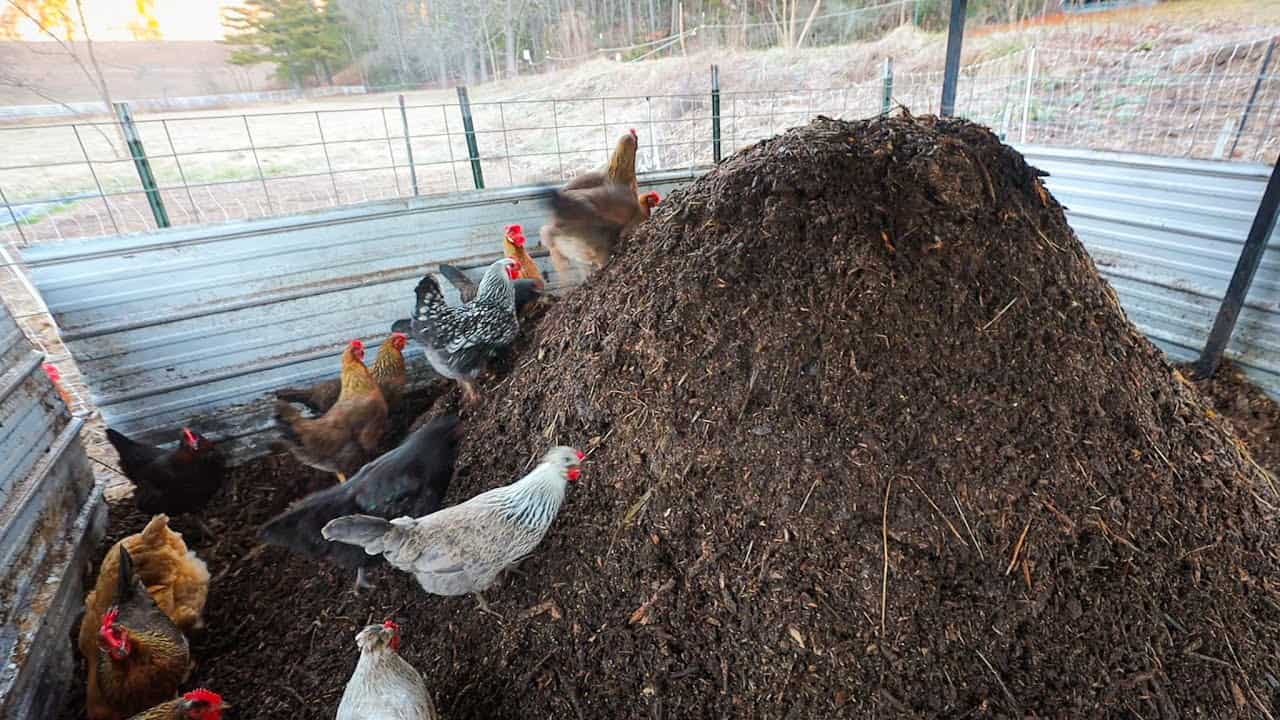
You can’t just get chicken poo and put it in your garden.
We love our chickens, but we sure don’t like their poo. Who would want to be in a garden that smells like chicken poo?
Aside from the smell, a better reason we can’t just add chicken poo to our garden is that it might do more harm than good.
Firstly, it could damage the plants. It might even kill them! The stuff in chicken waste is just too strong to be used as it is.
Additionally, it would be unhealthy for us as well. As much as there are good things in chicken waste, there are also many bad things. Take Salmonella as an example.
That is why we have to process it, to turn all that bad stuff into the good stuff.
4 Steps to Compost Chicken Manure
Let’s get to business!
There are four steps to turning chicken poo into chicken manure. Those steps are collecting, combining, mixing, and waiting.
The process requires patience and effort, but it’s not difficult and is quite rewarding. It’s practically making black gold if you ask me!
Step 1. Collection
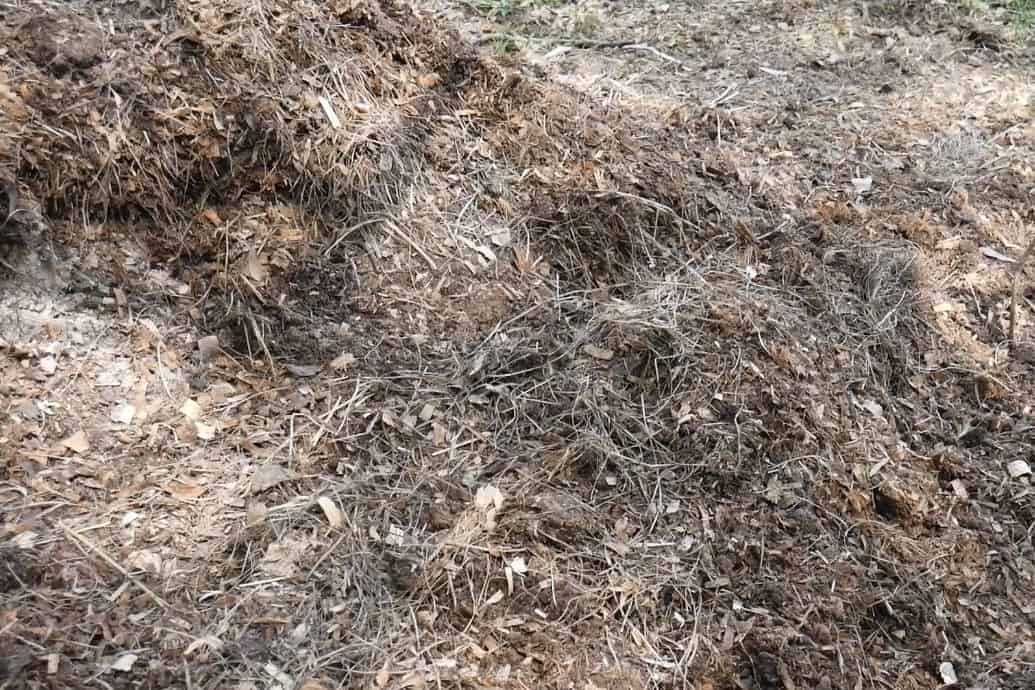
We can’t use chicken poo as it is. Still, we need it to make the fertilizer.
It isn’t hard to get chicken waste. Your chickens won’t deny it from you. What might be a problem is collecting it.
You can try to train your chickens to only poop in an area. Unfortunately, chickens are not as easy to teach as other pets.
If you’re using a dirt patch, then collection might be challenging. It could work, but it might not be easy.
You might want to start laying some bedding. There are many from which you could choose.
As you will see later, bedding might also make the composting process easier.
Next, you need to determine how often you are changing it. Some opt to change and collect the bedding every day. Others put a large amount of bedding and change it quarterly. (Don’t forget the gloves!)
Changing and collecting the pile depends on the handler. Consider how often you can commit to the routine. Also, how much you can cope with the smell. Remember, the longer the poo stays there and the more it accumulates, the worse the smell will be.
| Frequency | Advantages | Disadvantages |
|---|---|---|
| Daily | Ensures clean coop | Time-consuming |
| Weekly | Reduced daily workload | Increased odor |
| Bi-weekly (Every 2 weeks) | Less frequent handling | Stronger odor |
| Monthly | Least frequent effort | Highest disease risk |
Step 2. Combining
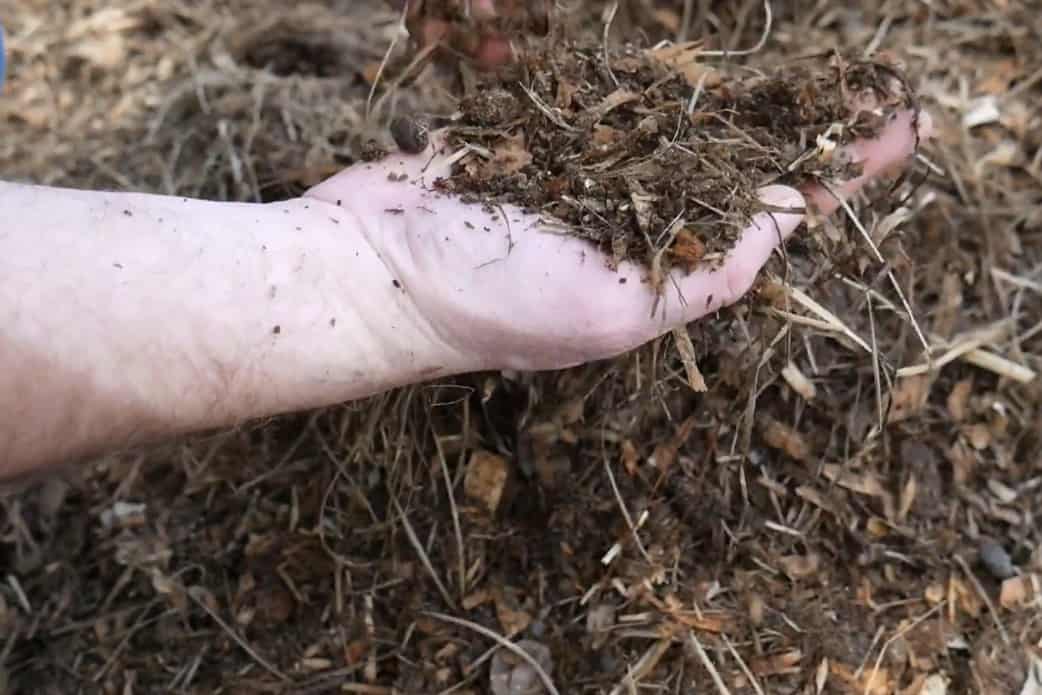
As we have said, we can’t use chicken waste as it is. We need to combine it with other things that would lower the concentration of harmful elements.
To make the mixture, you need two things. You might hear others calling it your browns and your greens or your nitrogen and your carbon.
For simplicity, I like to call it the dry stuff and the wet stuff. This way, it’s easier to remember and to know which is which.
Remember when we said the bedding would make things easier? Here’s where it comes in. You don’t have to look for dry material anymore. The bedding could already be your dry stuff. If you need more, then you can add some old cardboard and newspaper.
On the other hand, chicken waste would be enough to be your wet stuff. If you need more, weeds and vegetable scraps could work.
Different handlers go with different ratios. These are the usual ratios you’ll see:
- 1-part dry stuff and 2-parts wet stuff
- 1-part dry stuff and 1-part wet stuff
- 2-parts dry stuff and 1-part wet stuff.
I’d say the second and third ratios are alright, but I don’t suggest following the first one.
I prefer the 3-parts dry stuff and 1-part wet stuff ratio. Remember, chicken waste doesn’t only have good things in it. Chicken poo also has harmful stuff. Let’s be on the safer side.
Step 3. Mixing
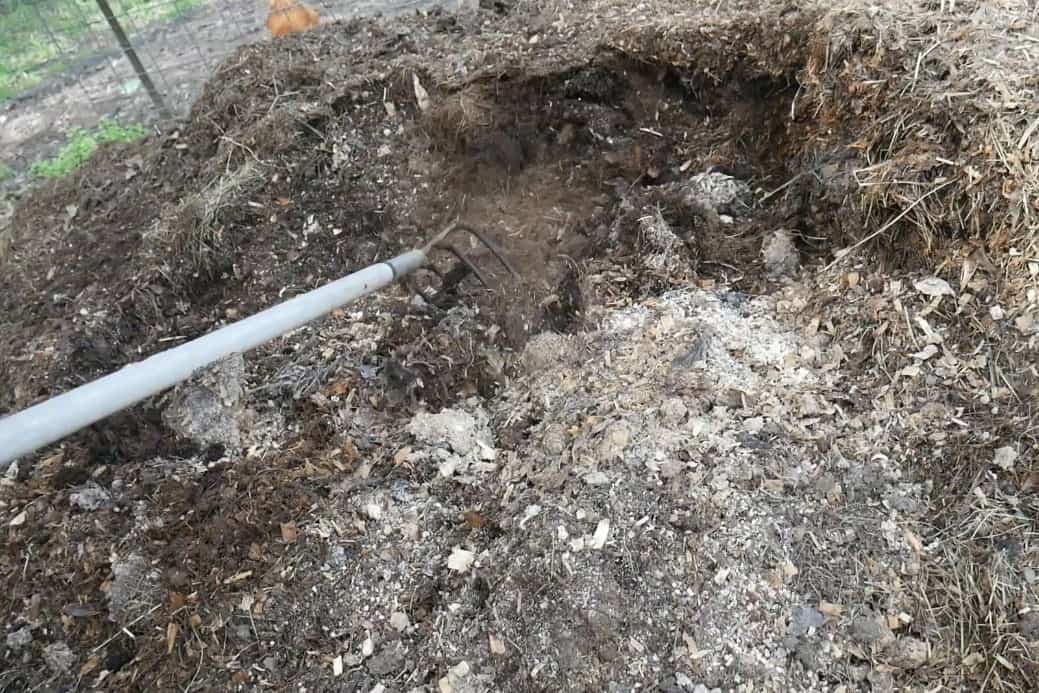
Once you’ve collected what you need and combined them, the action starts. Well, not much, as you will see. However, this step is where things start to turn to fertilizer.
Put everything in your composter. Add enough water so that the pile feels soft and damp. Don’t add too much water that it starts dripping or flooding.
Your compost pile might introduce a problem with rodents if you place it directly on the ground. If you already have this problem, then it’s best if you invest in a compost tumbler.
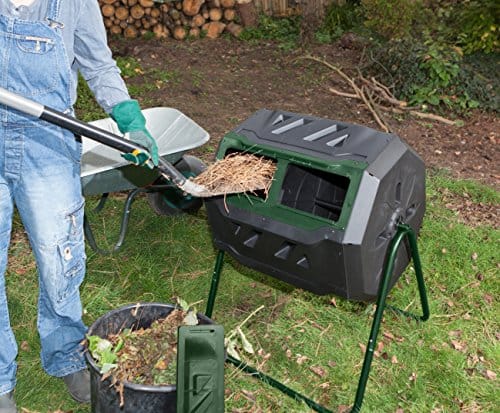
Compost tumblers are supposed to make the job easier. However, some say that it would make you wait longer. As for me, I don’t mind waiting. Also, once you finish your first pile, you won’t be needing another batch immediately. You can go here to know more about compost tumblers.
Alternatively, if compost tumblers are not for you, you can opt for a sealable container.
This process should start heating your pile. Your compost pile should have a temperature of about 130 – 160 degrees Fahrenheit (54 – 71 degrees Celsius). It should remain in between this temperature for three days.
If it’s not heating up, then you can check out these tips from Gardening Know How.
After this process, you would need to mix and turn it every once in a while.
Step 4. Waiting
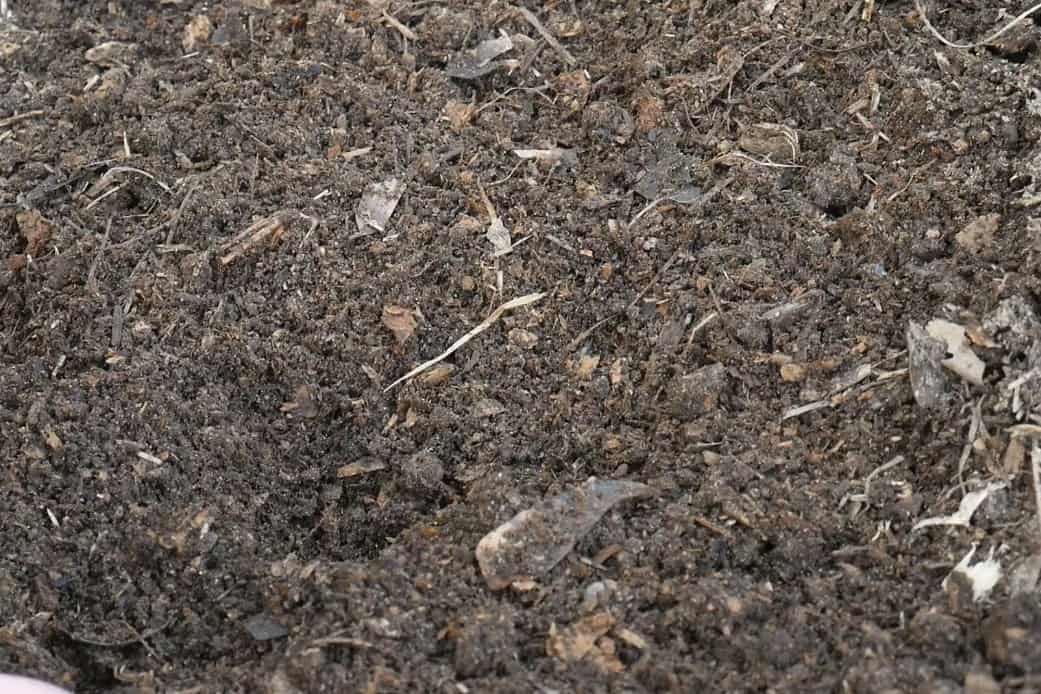
Unfortunately, you can’t use the chicken manure immediately. You need to wait around two months before you can finally use it. In the waiting stage, you would need to maintain your pile. Mix and turn it from time to time.
One way to know if it’s ready is by its smell. If it is still a foul odor, it probably is not okay to use. You want your pile to have an earthy smell. In other words, it should smell like soil when you use it.
Also, you can check its color and texture. It may look a little darker than soil or dirt, but it should resemble it. If it still looks like a pile of bedding and chicken poo, it’s not yet ready.
Using Your Chicken Manure
Once you think your chicken manure is ready, then you can start using it!
Here are a few things you might want to consider when it comes to compost:
- Use gloves for every part of the process.
- Use compost at the start. Adding it later on might not be effective.
- Don’t use manure for root crops. It might have gone through processing, but it might still have traces of the harmful stuff. It’s better to be safe.
- Use it sparingly with other types of crops.
- Wash the crops you used manure for before cooking and eating.
- Don’t randomly experiment with different types of waste. While chicken manure can be beneficial, not all waste is safe for composting.
Why Compost?
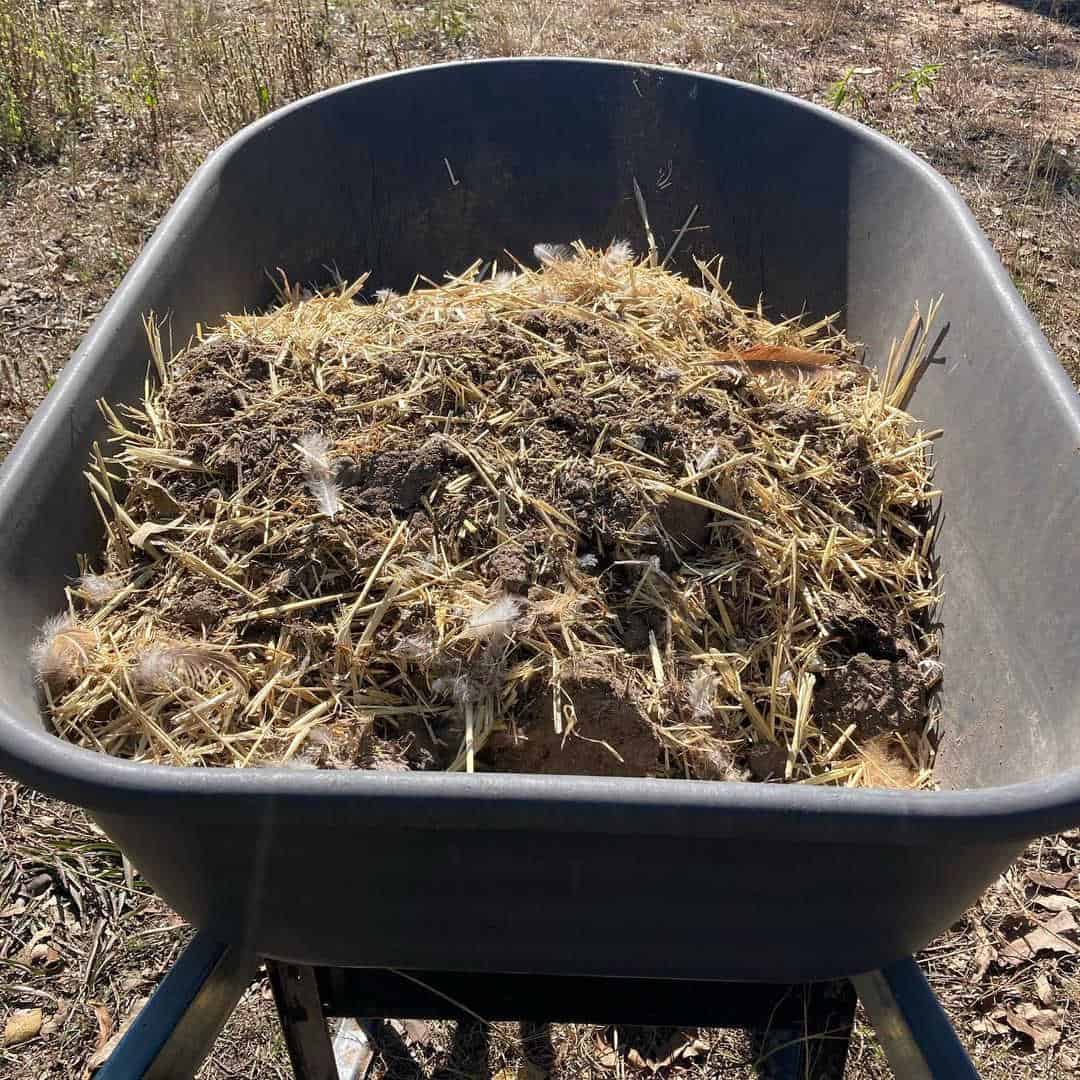
As you can see, the composting process needs time and effort. You might be wondering if the chicken manure is really worth the trouble.
Here are some of the benefits of chicken manure to your crops:
- Chicken manure is high in nitrogen. Plants need lots of nitrogen, and it is vital when it comes to productivity.
- Chicken manure is also high in potassium. This element is essential to plant growth. It affects the characteristics of plants. Because of that, it’s easy to see if your plants are lacking in potassium.
- Chicken manure is also high in phosphorus. This element is vital to plant growth when it comes to the photosynthesis process.
- Chicken manure is also high in calcium, vital in several processes. For one, it is necessary for soil structure.
These are just some of the benefits of using chicken manure in your garden. These are some of the benefits you’d be wasting if you let your chicken poo go to waste!
Summary
Chickens have been bringing great joy to people. They could be your little backyard buddies or your kitchen assistants. Who knew chickens could also be garden helpers? They’re probably the only animal with green thumbs!
Employ them in your garden today! They could help you with pest control. Now, you can also count on them for fertilizer.
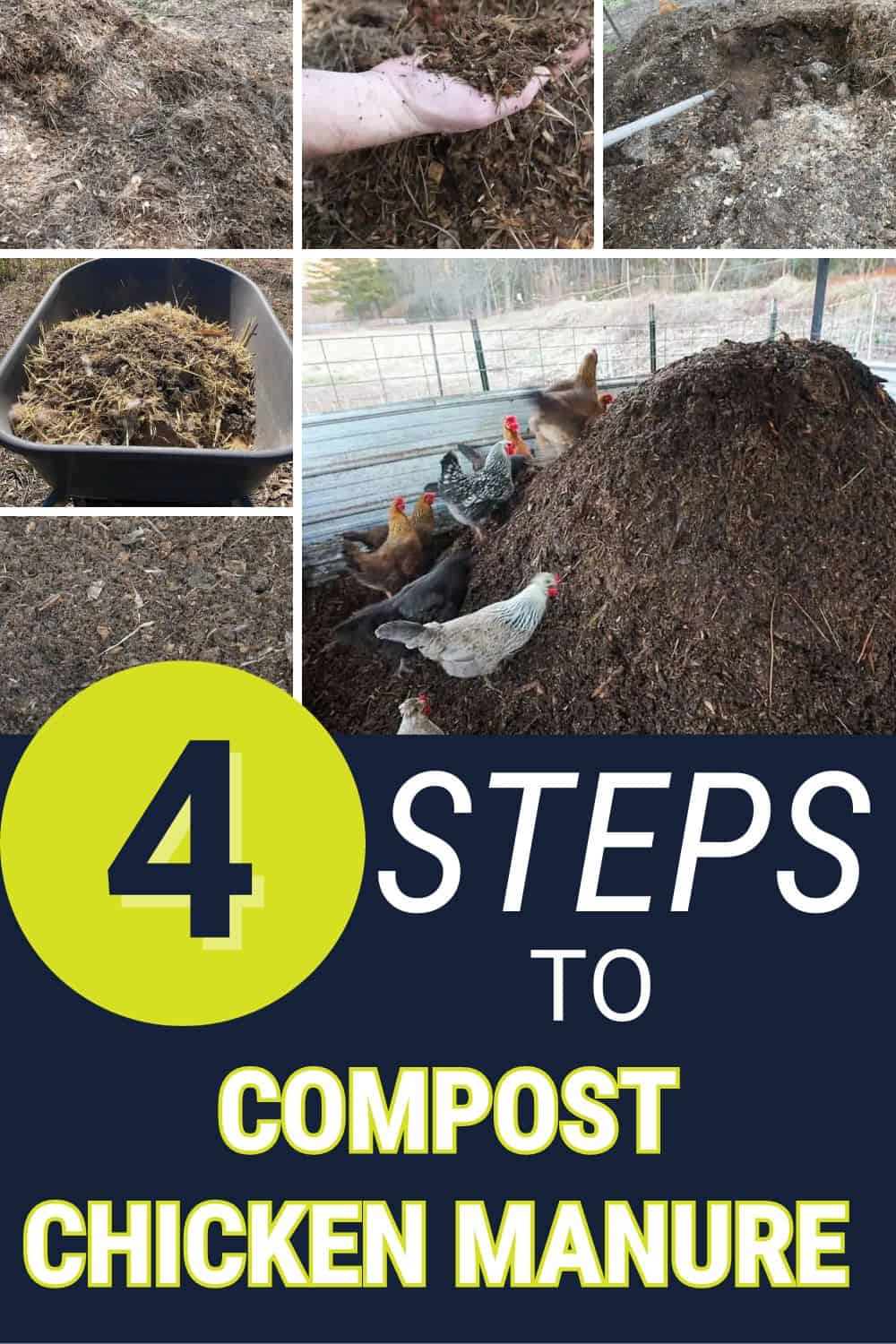

Joseph Hudson has been raising chickens for over 15 years. In 2018, he completed the Agriculture & Natural Resources program at Mt. San Antonio College. He currently raises over 1400 chickens on his 7.5-hectare farm. He keeps sharing his experience on raising healthy and happy chickens on Chicken Scratch The Foundry.
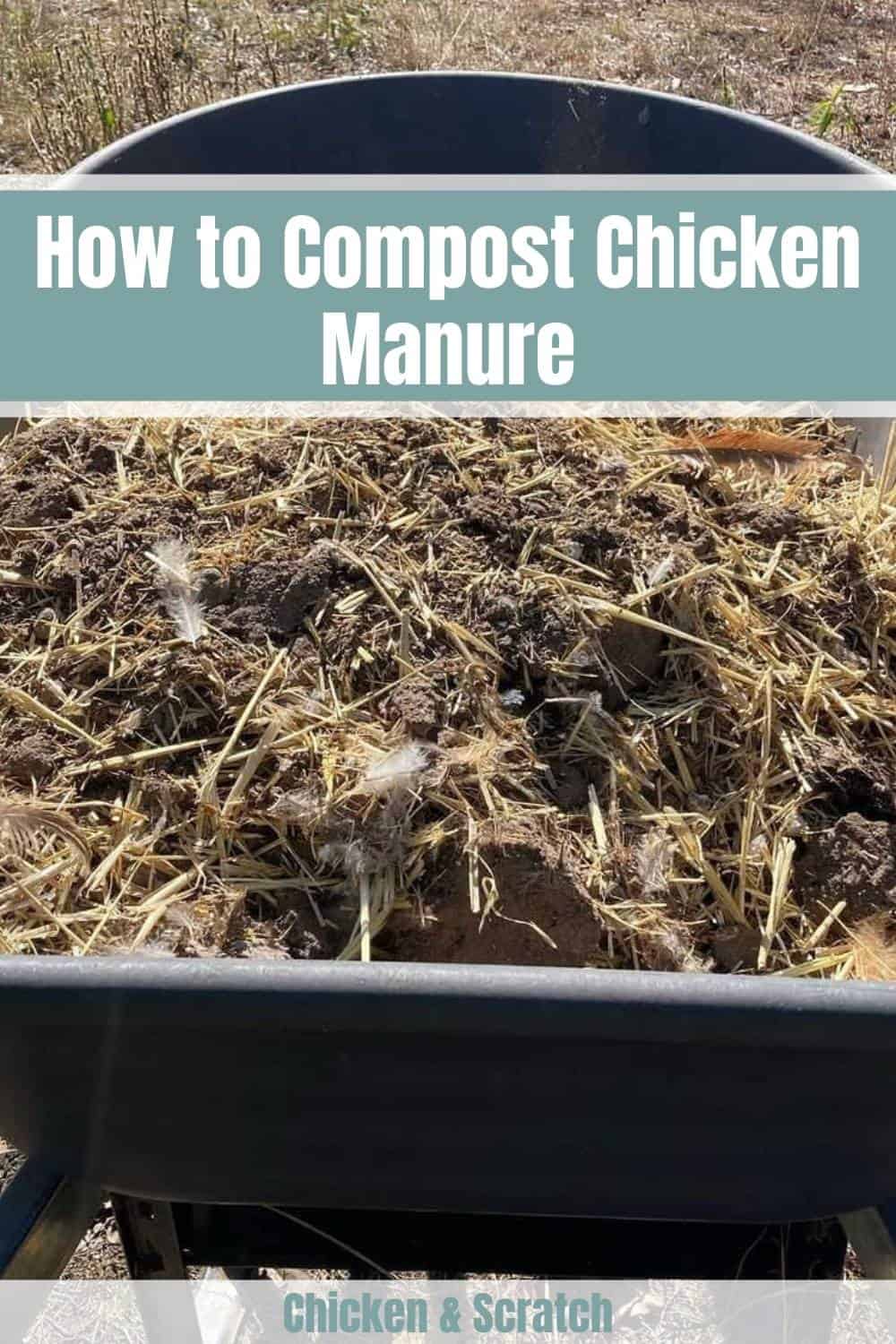







Very helpful stuff here. Thanx so much for the wonderful information.
Thank you so much for your kind words! I’m really glad to hear that you found our article on the 4 Easy Steps to Compost Chicken Manure helpful. Our goal is to provide useful and practical information to make composting chicken manure a breeze for everyone. If you have any questions or need further assistance, please don’t hesitate to ask. Happy composting! 🌱🐔
God blessing you for taking your time to share this wonderful info,kudus to you